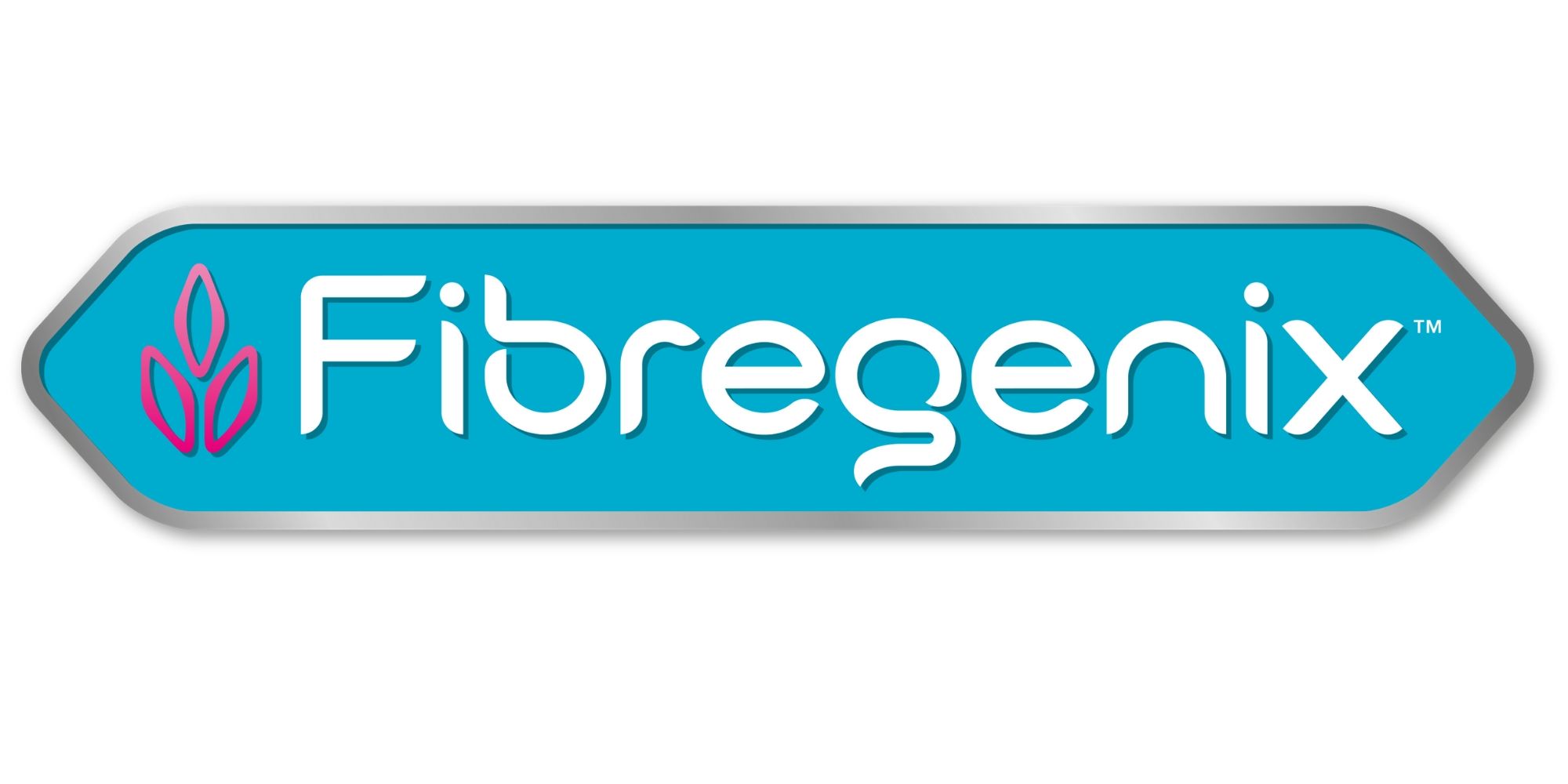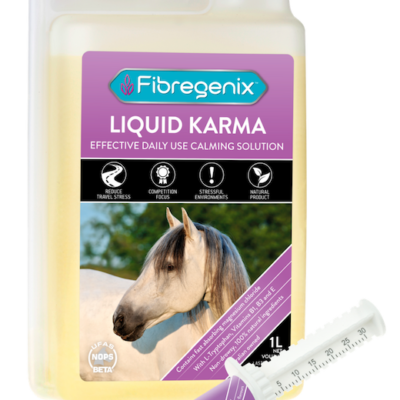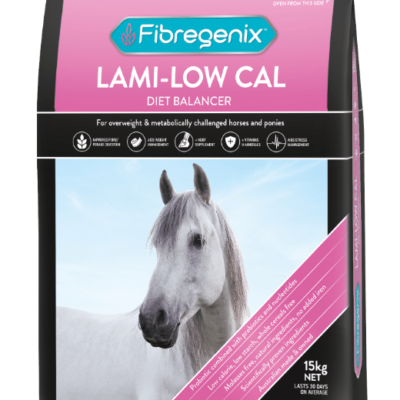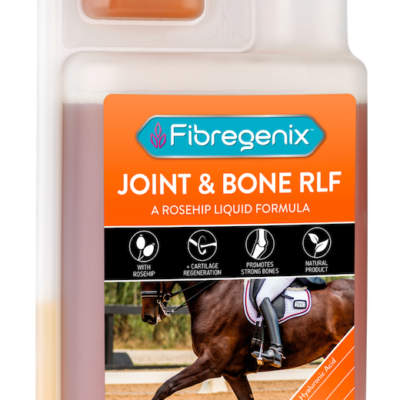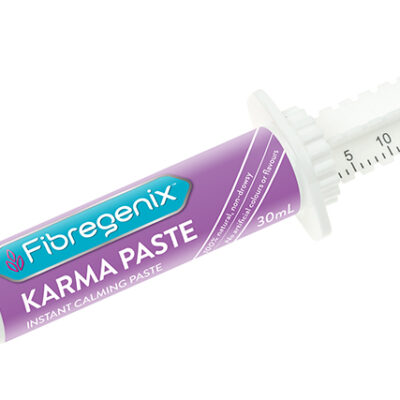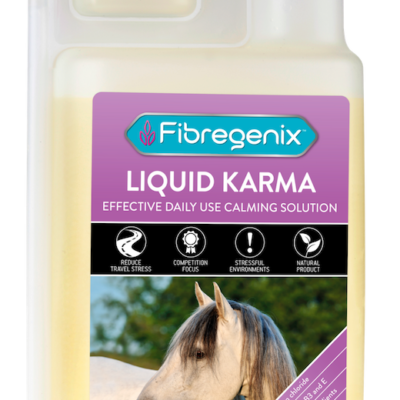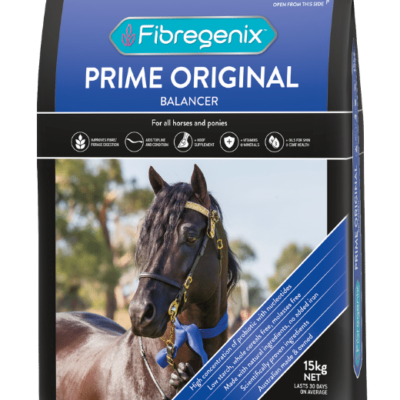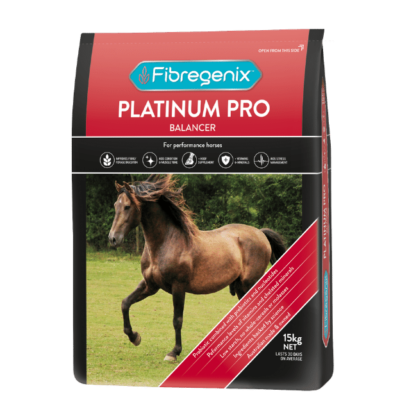Aug 27, 2019
If you have a horse in hard work/competition and you are currently feeding the daily recommended amount of a processed hard feed, once Fibregenix Platinum Pro is introduced you should be able to gradually reduce hard feed by at least half as the approved probiotic in Pro will enable him improve his nutrient yield from the fibre in his diet. You can then substitute that portion of hard feed with things such as beet pulp, linseed oil or lupins.
Pro has a Digestible Energy of 12.3MJ/kg, so it’s comparable with other medium energy hard feeds but without the whole cereal and molasses component in it. It’s also fed at just 100g per 100kg of bodyweight. Therefore it’s possible to reduce the amount of hard feed being fed which will cut down on the amount of starch and sugar in the horse’s diet – a ‘win-win’ for your horse’s digestive system.
Alternatively, you can also try feeding a ‘straight’ grain such as oats or micronized barley alongside your fibre and Platinum Pro to provide fast release energy – often a better option as you can actually see what you are giving your horse and you are feeding one type of cereal only rather than a combination of two or three as seen so often in processed hard feeds. Just be careful with the amount of grain you’re feeding in any one meal.
Platinum Pro is non-heating due to its low starch and sugar content.
Aug 27, 2019
Read the labels of that ‘cool’ feed – they may be labelled as ‘oat free’ but they’re all too often still formulated with other cereals. No feed can be considered ‘cool’ when it contains grains such as barley or maize (corn), even those that are extruded or micronized. Yes, cooking the cereal helps to improve pre-caecal digestion and avoid digestive disturbances, but the energy levels generated could be in excess to requirements leading to either unwanted weight gain or adverse behaviour. Ultimately, it’s all about helping horses to be fed a more natural diet as nature intended and keeping the digestive system settled. Horses in light work can utilise energy from volatile fatty acids produced from fibre digestion, so limiting starch in the diet and feeding more fibre is a far healthier option.
Aug 27, 2019
Where will my horse get his energy from?
In some instances – yes. For example if your horse is in light to moderate work then yes, generally he can get his energy/nutritional requirements from his fibre along with a Fibregenix balancer supplement to ensure his diet is balanced. The digestion of fibre produces volatile fatty acids which can be utilized as an energy source and you can also feed additional oil or super fibres such as beet pulp or even legumes such as lupins for additional cool energy/calories if required.
However, all horses and ponies are individuals and some may have greater nutritional requirements than others due to for example a compromised digestive system or having ulcers. Some may be in intense work which will require a fast release source of energy from cereals, so your horse should be assessed on an individual basis. Ultimately a wholly fibre diet is preferable and more often than not achievable. Add in the essential nutrients that Fibregenix will provide and you have the ultimate diet for lower energy requirements.
Aug 27, 2019
Surely my horse gets all the vitamins and minerals he needs from his current feed and if he is on a vitamin and mineral supplement too?
There are many specific hard feed/complete feed products on the market e.g. veteran mix/performance mix/leisure mix – these will be specially formulated with that type of horse in mind when it comes to essential nutrients i.e. a leisure mix probably won’t contain the same mg per kg of a mineral that a performance mix does. However, if you don’t feed the recommended daily amount as stated on the bag your horse won’t be getting his recommended daily amount of vitamins and minerals and his diet can end up unbalanced when you start second guessing and adding in other sources of vits/mins. A balancer helps to bridge nutritional gaps by providing nutrients that are going to be easily absorbed and utillised by the horse, rather than providing surpluses which will simply be pee’d or poo’d out or even create potentially toxic levels and unbalanced ratios. Furthermore, a simple vit/min supplement, won’t help when there are condition issues or other digestive problems.
Our balancer supplements contain beneficial levels of specific nutrients geared towards things such as hoof health, coat and skin and digestive health as well as covering the general A to Z bases of vitamins and minerals. So they’re providing far more than your average vitamin/mineral supplement….
